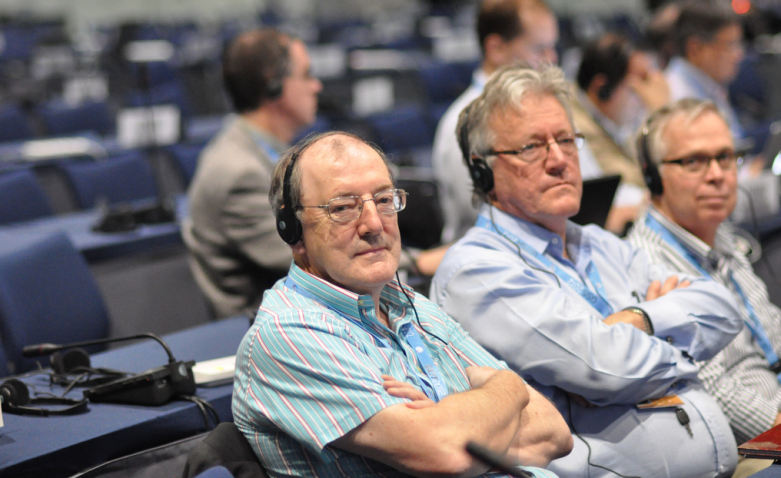
Masters of the Internet
Who controls the Internet?
That question rests uneasily at the center of debates this week at the World Conference on International Telecommunications in Dubai.
The 12-day wonkfest has brought together representatives from more than 150 U.N. member states to craft global rules for the Internet. And that's where the trouble begins.
For many at the conference, the working assumption is that governments should control the digital network. They've reached this conclusion without asking any of the billions of Internet users who might think otherwise. Nor have they sought the advice of the many civil society groups that are helping to build a grassroots Internet freedom movement with global reach.
This idea of control is reflected in a Russian proposal, leaked by conference delegates late last week, which would give governments the power to reprogram Internet addresses and block dissident websites. Thus far, Russia has gathered the support of China, Saudi Arabia and other repressive regimes but has yet to submit it for consideration by all conference attendees.
Governments aren't alone in seeking broader authority over the Internet. Many corporations see themselves as the Internet's masters, too.
Earlier this year, Verizon argued in a brief filed with the U.S. Court of Appeals that it had the First Amendment right to serve as the Internet's editor-in-chief. "In performing these functions, broadband providers possess 'editorial discretion,'" the telecommunications giant's lawyers claimed. "Just as a newspaper is entitled to decide which content to publish and where, broadband providers may feature some content over others."
The European Telecommunications Network Operators' Association is thinking along similar lines. The group, which represents European Internet service providers (ISPs), has proposed new rules that would let its members levy new fees on content providers like YouTube and Tumblr — effectively ransoming off access to their millions of Internet subscribers to the highest bidder.
If your startup can't afford these tolls, expect the ISPs to run you off the digital highway.
What's really emerging from Dubai is the growing discomfort governments and corporations have with the popular Internet freedom movement. It's a movement of people who seek to determine their own digital destiny. Whether organizing by Facebook, streaming videos via UStream or texting during a public protest, Internet activists demand the right to connect with one another and build democracy.
That many governments oppose open networks isn't news to those watching the recent backlash against online speech. Over the past two years authoritarian regimes across Asia, the Middle East and North Africa have sought sophisticated means to shut down websites, silence dissidents and filter online content.
What may be news to many is the extent to which governments are now working with telecommunications and Internet companies to facilitate this crackdown.
Last month's Google Transparency Report noted that government requests for user data were on the rise (to nearly 21,000 requests in the first half of 2012). The report noted that even the most democratic governments are working with businesses to surveil and censor what's online.
And while Google has reported the "alarming" increase in such government requests, other Internet companies are not as transparent.
Chinese companies Huawei and ZTE Corp. have reportedly sold digital intercept and "deep packet inspection" technology to Iran's wireless broadband provider so it can comply with state security efforts to monitor dissidents. When pressed by Reuters to confirm these sales, representatives of both companies at first denied it, and then declined further comment.
U.S. company Narus reportedly sold Web surveillance and monitoring technology to the Mubarak and Gaddafi regimes. It has refused to discuss its Arab world business dealings with the media.
A European Digital Rights report cites many similar incidents of collusion to paint a picture of an emerging "censorship ecosystem" powered by private entities working hand in glove with governments. "This presents a major threat to democracy and the concept of the rule of law," the report's authors conclude.
The controversy emerging from Dubai has drawn these Internet battle lines more clearly.
Policies governing the Internet should uphold every Internet user's right to connect and communicate. Any blocking of content — like content promoting sex trafficking of minors — must be done transparently, through the courts.
When necessary, Internet regulation should be built on the premise that the Internet is controlled not by governments or corporations, but by the people who use it.
Original photo of ITU delegates by Flickr user Veni Markovski
If you care about protecting the open Internet, please consider a donation to the Free Press Action Fund.